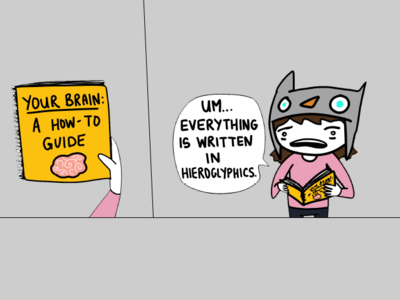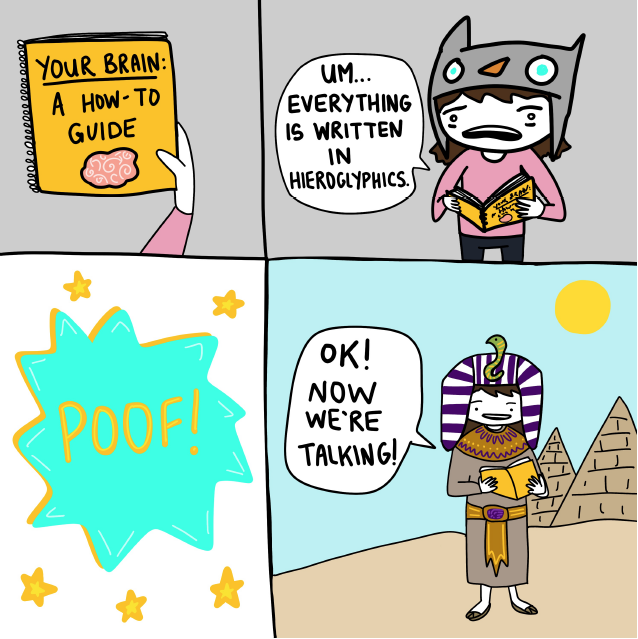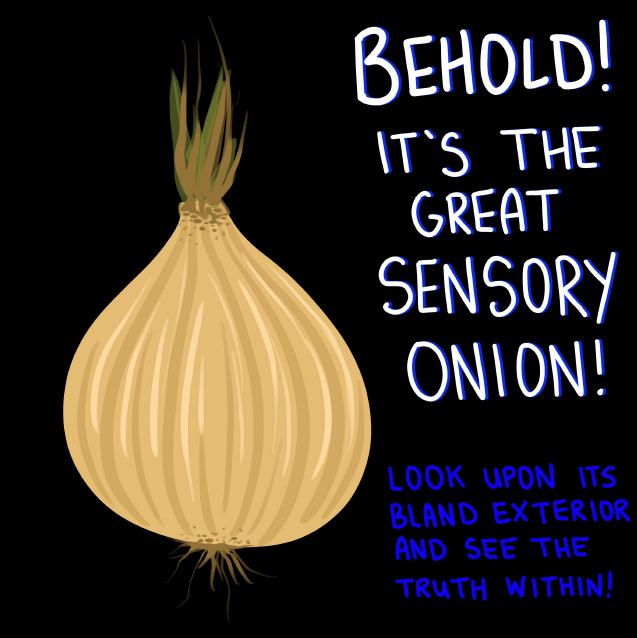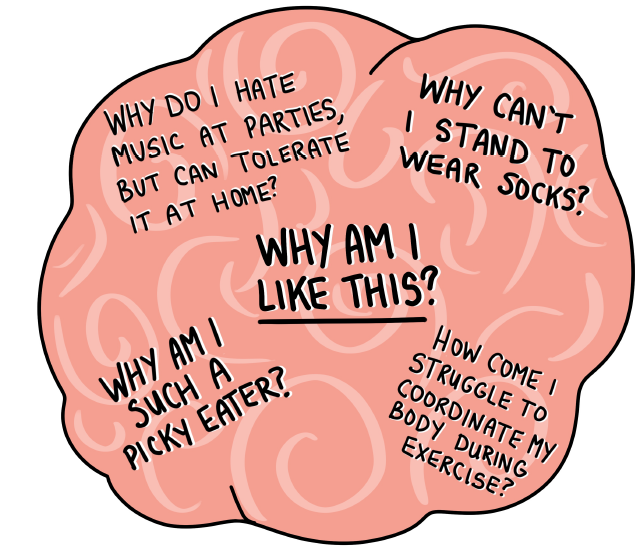Making Sense of Your Sensory Onion

Here’s a moderately interesting piece of information: of all the adults I know of who’ve been diagnosed with Sensory Processing Disorder, I am the only one who was diagnosed as a child - in 1996, to be exact. In fact, it used to be called Sensory Integration Disorder. That’s right, there was no “P.”
This has left me in a unique position. I've had nearly 20 years to experience my life with SPD fully knowing that I had SPD. (In case you didn't know, this is not common for adults with SPD.)
Unfortunately for lots of people, they live many - difficult - years not knowing what on Earth is going on with them. They have confusing and embarrassing issues that nobody can explain. Often, other diagnoses are used to account for the wide range of problems, but those diagnoses don't fit right. It's like forcing a puzzle piece into the wrong space when you're desperate to finish the dang thing. You know that particular piece doesn't work in that spot, but it's the closest one, and you're getting tired of figuring out this puzzle. You’re left with a wonky-looking puzzle, and an overwhelming sense of exasperation.
That's what it's like to be a sensory person without knowing that you are one.
Instructions Unclear, Please Try Again
As SPD'ers, we tend to spend an outrageous amount of time attempting to make sense of ourselves and our place in a world that doesn't seem too perceptive regarding our comfort or functionality. We make charts. We make lists. We experiment. We talk and cry and share until we find some solution - any solution - on how to manage living with an atypical neurological makeup.

If only it was that easy! Unfortunately, we aren't gifted with a set of instructions for how to manage our sensory brains. We are left with the often daunting task of making sense of all that ourselves.
The ease of this task seems akin to climbing Mr. Everest on a cow.

The Sensory Onion
Understanding your sensory self comes in layers (yes, as Shrek said, like an onion). Once you discover one layer of yourself, it leads to things hidden underneath that you wouldn't have discovered if you hadn't peeled back that first layer initially.

For instance, you've always assumed that you despised getting your hair cut because you don't do well with small talk, but as it turns out, you're tactile defensive, and having your hair touched in any manner is distressing to you.
There's the first layer of the sensory onion. It makes sense that you can do well with small talk in other places, but at the salon or barber, your hair is being touched during conversation. The hair touching is the real problem, not the small talk. Yet, the small talk becomes more difficult because of the hair-touching distress, hence the confusion.
As it usually happens when dealing with onions, there will probably be a lot of tears when you start to peel back the layers.
The realization that your life-long struggles can be traced back to a singular disorder and it has a name and it's REAL - that's quite a moment. That's the kind of moment where Oprah pops out and starts dishing out Volkswagens like some kind of freaky Santa. It's also a moment where you want to fall to the floor hysterically crying. You are mourning the struggle you or your child has faced. It was long - too long - and you've probably developed additional health problems trying to figure out that you had sensory issues all along.
There were most likely too many times to count where thoughts in your head looked like this:

After realizing that your seemingly random issues can all be attributed to one source, it's liberating. Your perspective of yourself and your life is altered drastically, and when a situation arises, you know it's probably your SPD at the root of the problem. And once you know that, you can get access to the tools and techniques to solve the problem.
But, it's not all sunshine and caramel fudge brownies. Some days, you still won't make sense. But that's part of the sensory journey. Your sensory onion is gigantic, and you're still peeling away those layers. There will be sensory problems that you will continuously have to overcome, and there will be no easy solution. There will be days where nothing makes sense and then, days where everything makes sense, and you'll feel like you and Moo-lan really did make it to the top of Everest.

If there’s one thing I know for sure, it’s that despite my early diagnosis, I’ve still got a long way to go with peeling away the layers of my sensory onion. But with every layer I get through, the more I realize that all this sensory nonsense can and will make a whole lot of sense.
Please Support
Project 2.4 Billion
Help us make information about sensory processing
challenges available in 6 additional languages.

If you are looking for SPD treatment for yourself or your child fill out a child or adult intake form now to be treated at STAR Institute Treatment Center or search our Treatment Directory to find services in your area
 Kelly Dillon is an adult with Sensory Processing Disorder, and the writer and illustrator of the blog Eating Off Plastic, where she humorously chronicles her life with SPD. She is a proud SPD advocate for children, teens, and adults. Kelly enjoys creature comforts, pacing in small rooms, and cupcakes. She has her Bachelor’s Degree in Psychology from SUNY New Paltz. Visit her website!
Kelly Dillon is an adult with Sensory Processing Disorder, and the writer and illustrator of the blog Eating Off Plastic, where she humorously chronicles her life with SPD. She is a proud SPD advocate for children, teens, and adults. Kelly enjoys creature comforts, pacing in small rooms, and cupcakes. She has her Bachelor’s Degree in Psychology from SUNY New Paltz. Visit her website!
